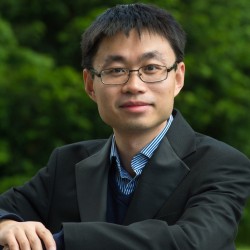Perovskite solar cells' instability must be addressed for global adoption, say Surrey researchers
Mass adoption of perovskite solar cells will never be commercially viable unless the technology overcomes several key challenges, according to researchers from the University of Surrey.

Perovskite-based cells are widely believed to be the next evolution of solar energy and meet the growing demand for clean energy. However, they are not as stable as traditional solar-based cells.
The Surrey team found that stabilising the perovskite "photoactive phases" – the specific part of the material that is responsible for converting light energy into electrical energy – is the key step to extending the lifespan of perovskite solar cells.
The stability of the photoactive phase is important because if it degrades or breaks down over time, the solar cell will not be able to generate electricity efficiently. Therefore, stabilising the photoactive phase is a critical step in improving the longevity and effectiveness of perovskite solar cells.
In the study, the Surrey team analysed how new technological advances can be used to strengthen the perovskite's phases.
Dr Xueping Liu, the first author at the Advanced Technology Institute, University of Surrey, said:
"Perovskite solar cells are not yet as reliable as traditional solar cells, even though they are more efficient at converting sunlight into electricity. To make these cells more reliable, it is important to understand why they are unstable and to find ways to control how they are made to prevent them from breaking down over time. This research aims to do just that by better understanding the cells' stability and how to improve their design. By doing this, perovskite solar cells could be used on a larger scale, helping to provide more clean energy for everyone."
Dr Wei Zhang, the main corresponding author and project lead from the University of Surrey, said:
"The scientific community will have to work on breaking through the stability bottleneck of perovskite materials. Revisiting scientific mechanisms of phase instability and seeking opportunities derived from light harvesting material will potentially trigger the evolution of the next generation perovskite PVs."
The study has been published in Nature Reviews Chemistry.
The research was conducted in collaboration with the University of Toronto, the University of Stuttgart, and the Ulsan National Institute of Science and Technology.
The University of Surrey is a world-leading centre for excellence in sustainability – where our multi-disciplinary research connects society and technology to equip humanity with the tools to tackle climate change, clean our air, reduce the impacts of pollution on health and help us live better, more sustainable lives. The University is committed to improving its own resource efficiency on its estate and being a sector leader, aiming to be carbon neutral by 2030. A focus on research that makes a difference to the world has contributed to Surrey being ranked 55th in the world in the Times Higher Education (THE) University Impact Rankings 2022, which assesses more than 1,400 universities' performance against the United Nations' Sustainable Development Goals (SDGs).
###
Notes to editors
For more information, please contact the University of Surrey's press office via mediarelations@surrey.ac.uk
Featured Academics
Media Contacts
External Communications and PR team
Phone: +44 (0)1483 684380 / 688914 / 684378
Email: mediarelations@surrey.ac.uk
Out of hours: +44 (0)7773 479911

